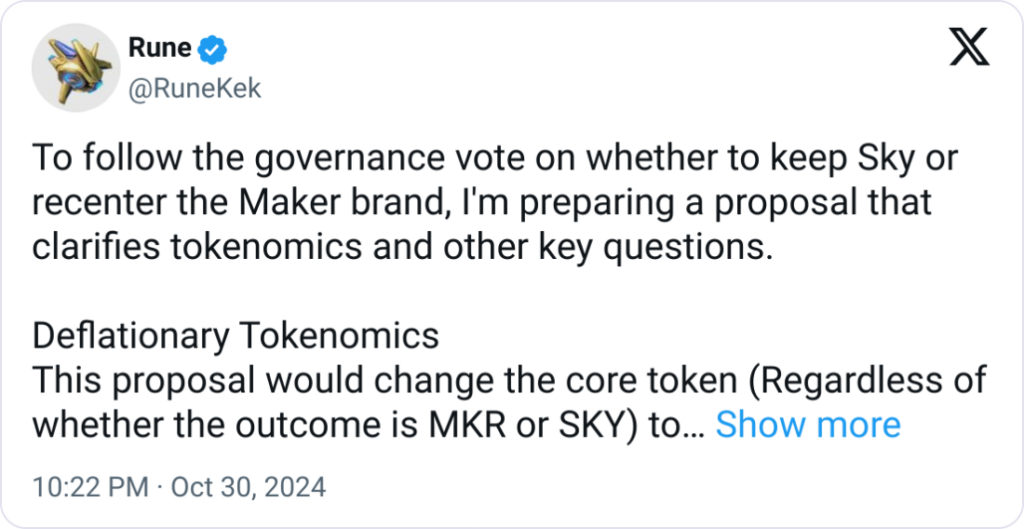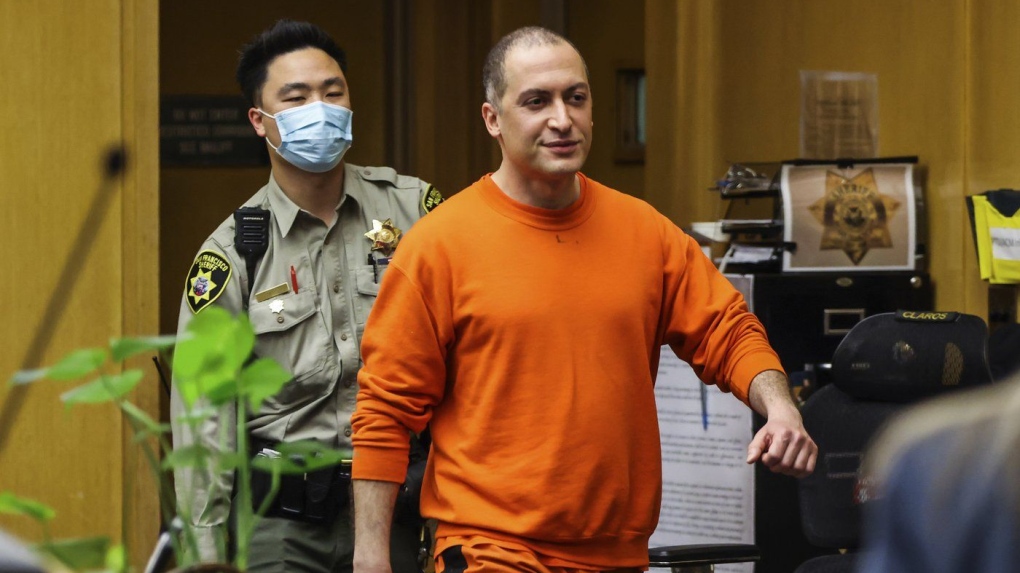Rune Christensen, co-founder of Sky (formerly MakerDAO), proposes a strictly deflationary model to stop token emissions, in line with MakerDAO’s goal.
Rune Christensen, the co-founder of Sky (previously MakerDAO), is drafting a proposal for “strictly deflationary tokenomics” to stop token emissions and reduce the overall supply.
Whether the core token remains Maker or changes to SKY in accordance with the new brand, Christensen’s plan seeks to prevent token emissions from happening “under normal circumstances.”
By MakerDAO’s initial tokenomics model, the new token structure would guarantee that the selected token is backed by a burn mechanism and long-term supply reduction.
By reiterating the supply reduction idea and carrying on with its objective of greater stability and lower inflation, this new plan would expand upon the previous model.

Tokenomics that is Strictly deflationary
The primary goal of Christensen’s approach is to apply a “burn-only” deflationary strategy, which gradually reduces the supply of core tokens via a methodical burn mechanism.
Value via Incentives
Christensen incorporates an incentive system in addition to the deflationary model concept to encourage involvement and raise the token value.
The rewards system would enable holders to obtain “Star Token Rewards, such as Spark SPK, through Activation,” regardless of whether the basic token stays MKR or SKY changes.
Additionally, the co-founder stated that “more valuable rewards of both Star Tokens and USDS Rewards” will be available to “committed governance participants using the Seal Engine.”
Future governance vote
Christensen’s suggestion comes before the governance vote, which is scheduled for November 11–14, during which stakeholders will choose between MKR and SKY as the primary token.
The vote was held after the community contemplated changing its mind and going back to its previous Maker moniker due to misunderstanding and unfavorable comments regarding its August rebranding to Sky.
Christensen stated in his Nov. 4 X post that this most recent proposal will provide the ecosystem with fresh clarity over the protocol’s future trajectory, enabling it to “move forward and focus on growing the fundamentals.”



